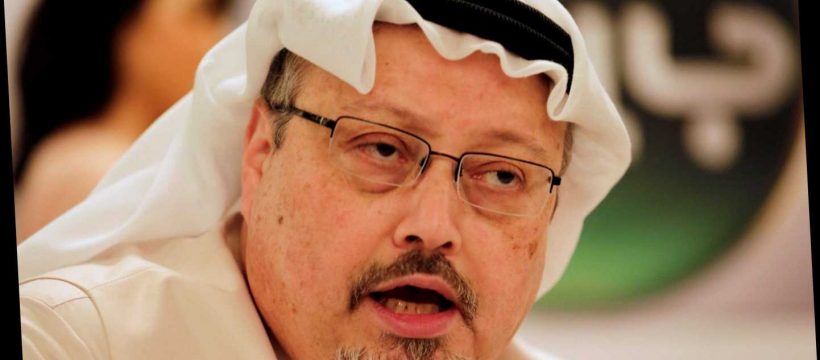FIVE people have been sentenced to death for the murder of Saudi journalist Jamal Khashoggi, the country's public prosecutor has announced.
Khashoggi, an outspoken critic of the Saudi government, was reportedly hacked to death inside the kingdom's consulate in Istanbul, Turkey in 2018.
Saudi agents were seen on security footage entering and leaving the building at the time of the murder after flying into the country immediately before.
Turkish newspaper The Daily Sabah later published details of an audio recording in which Khashoggi, 59, is heard asking his killers what is going to happen to him.
Khashoggi had gone to the consulate to obtain papers he needed in order to marry his fiance.
Eleven people, who have not been named, were put on trial over the death.
As well as the five sentenced to death, three were given jail sentences totalling 24 years.
The public prosecutor also confirmed that former royal adviser Saud al-Qahtani was among those originally investigated but was later released without charge.
The chilling last moments of Jamal Khashoggi
A recording obtained from Turkish intelligence, the journalist can reportedly be heard making his final breath.
Those allegedly responsible can also be heard discussing the grisly killing, according to the Daily Sabah’s transcript of the conversation.
At the beginning of the recording Dr Salah Muhammed Al-Tubaigy, the head of forensic evidence at the Saudi General Security Department, can be heard in with intelligence office Maher Mutreb.
Mutreb asks: “Is it possible to put the body in a bag?”
Al-Tubaigy replies: “No. Too heavy, very tall too. Actually, I've always worked on cadavers. I know how to cut very well. I have never worked on a warm body though, but I'll also manage that easily.
“I normally put on my earphones and listen to music when I cut cadavers. In the meantime, I sip on my coffee and smoke.
“After I dismember it, you will wrap the parts into plastic bags, put them in suitcases and take them out.”
When Mr Khashoggi was in the room with his killers, Mutreb says: “Please sit. We have to take you back [to Riyadh]. There is an order from Interpol. Interpol demanded you be returned. We are here to take you."
Later he was told to write a message to his son telling him not to worry if he is not heard from but he said: "I will write nothing."
During the conversation, another hit squad member who is playing the “bad cop” keeps saying: “Cut it short.”
Khashoggi then asks; “There is a towel here. Will you have me drugged?
Al-Tubaigy replies: “We will put you to sleep.”
After he was drugged, Khashoggi utters his last words: “Don't cover my mouth. I have asthma, don't do it. You'll suffocate me."
By that time a plastic bag was already on his head and according to the Daily Sabah, scuffling and struggling can be heard in the recordings.
Members of the hit squard can he heard saying "is he asleep?", "he's raising his head," "keep pushing" and "push it well”.
Saudi Arabia faced international outrage over the killing, seen as an attempt to silence one of its most prominent critics.
Khashoggi was a columnist for the Washington Post and had criticised, among other things, the arrest of human rights activists and Saudi Arabia's leading role in the ongoing war in Yemen.
The criticism has focused on Crown Prince Mohammed bin Salman, the 34-year-old de facto leader of Saudi Arabia, who denies having ordered the killing.
The Saudi government claimed the killing was a rogue operation, but a report published by the United Nations in June declared it an "extrajudicial execution".
“The circumstances of Mr Khashoggi’s death have led to numerous theories and allegations, but none alters the responsibility of the Saudi Arabia State,” the report said.
“Saudi state agents, 15 of them, acted under cover of their official status and used state means to execute Mr. Khashoggi.
“His killing was the result of elaborate planning involving extensive coordination and significant human and financial resources.
"It was overseen, planned and endorsed by high-level officials. It was premeditated.”
It added that the Saudi state had failed to investigate the killing "effectively, transparently, and in good faith" or to guarantee fair trials for those accused.
Source: Read Full Article




